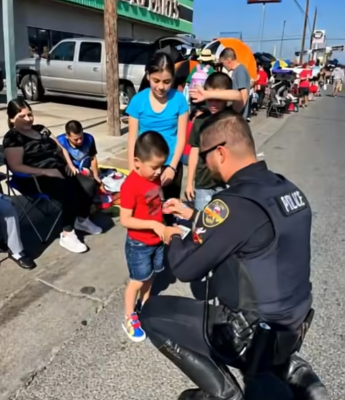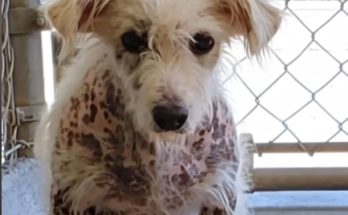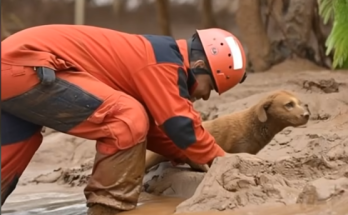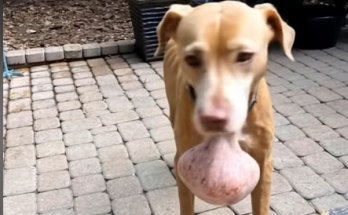We’d been standing in line for over an hour—sweating, bored, and trying to keep the little ones entertained with juice boxes and sidewalk chalk. The parade hadn’t even started yet. Mom was in her folding chair chatting with a neighbor, and I was supposed to be watching Marcus.
But I blinked—and he was gone.
I dropped my slushie and started yelling his name, panic swelling in my throat. I ran up and down the block, heart pounding, scanning every crowd, every stroller. I couldn’t even cry—my body was too busy shaking.
And then I saw him.
Right in front of Gonzalez Auto Parts, near the front of the crowd.
A police officer was kneeling in front of Marcus, gently holding his wrist, wrapping something around it.
I slowed down, breath caught in my chest.
The officer looked up and gave me a calm nod. “He’s okay. Found him near the curb trying to find his way back.”
Marcus didn’t even look scared. Just fascinated by the little wristband the cop had given him. It had his name, my name, and Mom’s number on it.
I opened my mouth to thank him, but before I could speak, the officer pulled something else out of his pocket.
And said, “Actually… your brother already told me something I think you should hear.”
I blinked, confused. “What do you mean?”
The officer glanced at Marcus, then at me, his tone still gentle. “He said he wasn’t really lost. He was looking for his dad.”
That stopped me cold.
“Our dad?” I asked, my voice cracking a little.
Marcus looked up at me, that same innocent face he always had when he thought he’d done something clever. “You said he might come to the parade this year,” he said simply. “So I thought I could go look. You were busy.”
I felt my knees wobble. “I didn’t say he would be here.”
“You said he might,” Marcus replied, like that made it all logical. “So I figured I’d just check.”
The cop stood up and handed me a folded piece of paper. “He made this. I think it’s why he wasn’t scared.”
I opened it.
It was a drawing.
Stick figures: one tall, one short, one with curly hair—that was probably me—and one with glasses. All holding hands. “FIND DAD,” was written in uneven crayon letters across the top. There was even a small heart next to it.
“I was gonna ask people,” Marcus said, shrugging like this was no big deal. “I had my picture.”
I didn’t know whether to cry or hug him or both. So I crouched down and did the one thing that made sense—I pulled him into my arms.
“I’m sorry,” I whispered, my voice shaking. “I didn’t know you were still thinking about him.”
Marcus nodded against my shoulder. “I always think about him.”
The cop gave me a minute before speaking again. “He told me your dad left when he was three?”
I nodded slowly, standing back up. “Yeah. He left one day and just… never came back. No contact. No letters. Nothing.”
The cop frowned thoughtfully. “That’s rough.”
“Mom says we’re better off,” I said, more to myself than anyone. “But Marcus… he was so young, I guess he still remembers things different.”
The officer looked like he wanted to say more but didn’t. Instead, he handed me a card. “We see a lot of kids get separated during events like these. Maybe give him a few more of those wristbands when you go out.”
I nodded, thanked him again, and we walked back toward Mom.
She didn’t even know anything had happened. Still deep in conversation with Mrs. Alvarez.
I didn’t tell her.
Not right then.
That night, when Marcus was asleep, I sat on the edge of his bed holding the crayon picture in my hand. I hadn’t seen my dad in seven years. Not since I was twelve. I used to imagine all kinds of reasons why he left. Maybe he had to go far away for work. Maybe he was sick. Maybe he was ashamed and just didn’t know how to come back.
But at some point, I stopped wondering. I’d buried it deep and moved on.
Clearly, Marcus hadn’t.
The next morning, I did something that felt stupid at first.
I Googled him.
I had his full name and a general idea of where he used to work. A few searches later, I found a Facebook profile. No photo, barely any posts, but one caught my eye from three months ago.
“Starting fresh. Back in town. Time to make things right.”
It had maybe two likes. One was from a woman named Tanya. The other was from a local veterans’ group.
Something twisted in my stomach.
He was back?
I debated telling Mom, but I already knew her answer. Don’t open that door again. She’d said that every time I asked about him growing up.
But maybe Marcus deserved better than silence.
So I messaged him.
I kept it short.
“Hi. This is Lia. I’m your daughter.”
He replied within an hour.
I stared at the blinking dots like they were going to explode.
His message was longer than I expected.
Lia. I don’t deserve to hear from you, but I’m glad you reached out. I’ve wanted to for years, but I was ashamed. I’m living in the area again. If you’d ever want to meet, I’d like that. No pressure. I just want to say I’m sorry—for everything.
I stared at the message for a long time.
I didn’t know what I felt. Relief? Anger? Curiosity?
Mostly, I thought of Marcus. That little picture. That tiny heart.
So I said yes.
We met at a small diner on 5th Street, the one with the faded red booths and the jukebox no one ever used anymore.
He looked older than I remembered. More tired. His beard had gray in it, and his hands were rough.
But his eyes were the same.
“Hi,” he said when he saw me. Just that. Like he was afraid I’d bolt.
I sat down. “Hi.”
We talked.
He didn’t make excuses. He didn’t blame anyone.
“I messed up,” he said. “I was scared, and I thought you’d all be better without me. Then one year became five… and I didn’t know how to fix it.”
I told him about Marcus. About the parade. About the drawing.
His eyes watered.
“I think he wants to meet you,” I said. “But I don’t know how Mom will react.”
“I’m not here to make trouble,” he said quickly. “If all I ever get is to say sorry, I’ll take that.”
But that wasn’t enough—not for me, not for Marcus.
So I talked to Mom.
It didn’t go well.
“He has no right,” she said, crossing her arms. “He left. End of story.”
“He’s not asking for anything,” I said quietly. “He just wants to see his son. One time.”
Mom shook her head. “And then what? He disappears again? You think I can let Marcus go through that twice?”
“I’ll be there,” I said. “If he hurts him, I’ll never forgive him either. But maybe Marcus deserves the chance to decide that for himself.”
She didn’t say anything for a long time.
But eventually, she nodded.
“I want to meet him first,” she said. “Just me.”
That meeting was tense. They met at a coffee shop. I stayed outside with Marcus while they talked. Twenty minutes passed. Then thirty.
When Mom came out, her face was unreadable.
She looked down at Marcus, then back at me.
“He can come over Sunday,” she said quietly. “For dinner. Just dinner.”
And that was how it started.
He came over, nervous as anything. Marcus ran to him like they’d never been apart. It was awkward at first—until Dad (it felt weird saying it again) showed Marcus how to fold a paper airplane with a nose that actually flew straight. Marcus was thrilled.
We started seeing him once a week. Just at first.
Then it became more.
I kept waiting for the other shoe to drop. For him to flake, to disappear, to mess up.
But he didn’t.
He showed up every time. Picked Marcus up from school one day when Mom had a migraine. Came to my track meet with a homemade sign that said GO LIA. It was embarrassing—but in the best way.
It wasn’t perfect.
Mom was still cold to him. He didn’t push it.
Sometimes, I could see guilt heavy in his eyes when he looked at us too long.
But one night, about three months after that parade, he sat us both down.
“I want to make it official,” he said, voice shaking. “If it’s okay with your mom… I’d like to be on Marcus’s emergency contact list. And yours too, Lia. If you’ll let me.”
I didn’t even hesitate.
“I’d like that.”
That night, as I tucked Marcus in, he smiled up at me sleepily.
“I knew he’d come.”
“Yeah?”
“Yup,” he whispered. “You just had to believe again.”
And I did.
Not just in Dad.
But in the idea that people could change. That sometimes, second chances came wrapped in parades, in drawings, in tiny, stubborn hearts that refused to give up.
Life doesn’t always go the way we plan. People mess up. People leave. But sometimes… they come back. And when they do, maybe—just maybe—we can find a way to build something better.
If this story touched you, share it with someone who needs a little hope. And don’t forget to like—it helps more stories like this reach the people who need them most.



